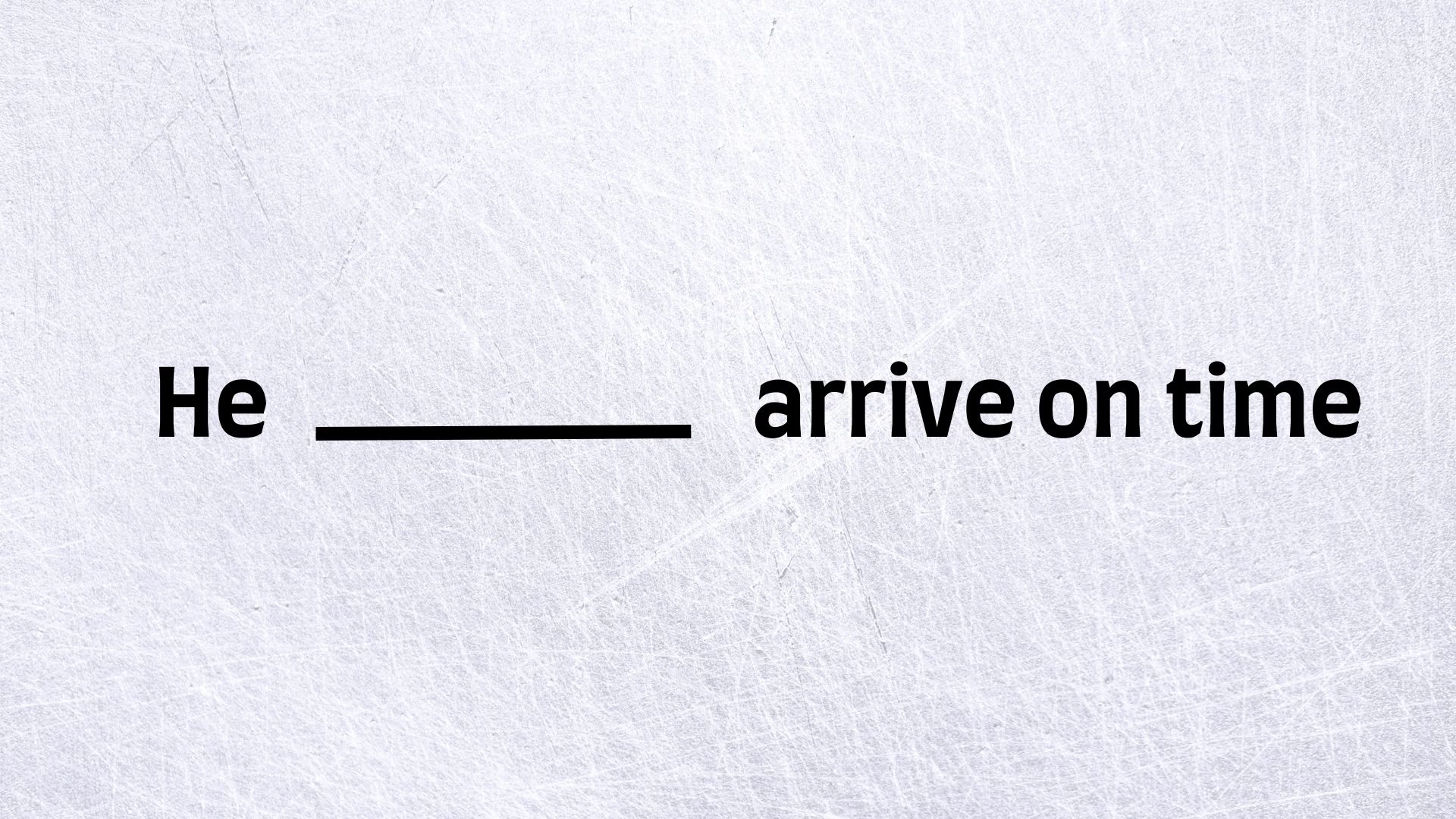Can you guess these 5 grammar questions in this puzzle?
Enter the world of grammar puzzles. These puzzles present situations where you need to use your grammar skills and creative thinking. They can keep your mind active and even help you relax. There are a variety of grammar challenges to enjoy, including the one that follows. This challenge can be a little tricky, but is perfect for those who are really good at grammar and noticing small details. When you become an expert on these puzzles, you get more than just fun, it gives you skills that will help you in many areas of life.
Even if the puzzle seems difficult at first, your goal is to find a solution that follows the rules of grammar precisely and reveals the secrets of the puzzle. The next section explains this syntax dilemma in detail and shows you how to solve it.
1.He ____ arrived on time
Using “will” in the sentence “He will come on time” is a way of expressing future action. In English, “will” is often used to indicate that something will happen in the future. In this case, it indicates that the person referred to as “he” is expected to arrive on time in the future. The grammar behind this involves the use of modal verbs, and “will” is a modal verb used for future actions. Therefore, “He will come on time” means that the speaker believes or predicts that the person will be on time when he arrives.

2. I ____ work very hard
The use of “work” in the sentence “I work very hard” expresses the act of putting a lot of effort and diligence into one’s task or job. Grammatically, “work” is a verb indicating ongoing or habitual action. In this case, it tells us about the speaker’s sustained and dedicated effort in his or her job or duties. The adverb “very” intensifies the degree of effort, emphasizing that the speaker is exerting considerable effort. Simply put, when you see “work” in a sentence, it means that someone is putting great effort into what they are doing, in this case, they are doing it diligently and with determination .

3. We ____ an ice cream
The use of “eat” in the sentence “We eat ice cream” represents the action of eating ice cream. In this case, it tells us that the speaker and others are enjoying or eating ice cream together. In terms of grammar, “eat” is the base form of the verb used in the present simple tense. It is used to describe regular or habitual actions. In this sentence, “we” refers to a group of people who are eating ice cream right now. Simply put, when you see “eat” in a sentence, it means someone is eating or enjoying food.

4. Ram ____ doesn’t teach me
The word “does” in the sentence “Ram did not teach me” is used as an auxiliary or helping verb to create a negative statement in the present simple tense. In English grammar, when forming a negative sentence in the present simple tense, we use “does” as the third person singular (in this case “Ram”) followed by “not” to express negation. “Teach” is the main verb in this sentence, and “does” helps indicate that this is something happening now, rather than a regular or habitual action. Simply put, when you see “does” in a sentence, it usually means that something is currently happening, in which case Ram is not teaching the speaker at the moment.

5. There is a bird in the sky ____
The word “flying” in the sentence “A bird is flying in the sky” is used to describe the current action of a bird flying in the sky. In this case, “is flying” is constructed using the present continuous tense formed from the verb “is” (the present form of the verb “to be”) followed by the present participle “flying”. This tense is used to express an action that is happening right now. So, in simple terms, when you see “flying” in a sentence, it means that something is actively happening right now.

Calculate the sum of 360 ÷ 12 + 7 x 3 – 63 ÷ 7=?
To solve this calculation, use order of operations. Division and multiplication proceed from left to right: 360 ÷ 12 equals 30, and 63 ÷ 7 equals 9. The equation becomes 30 + 7 x 3 – 9. Now, multiplication and addition/subtraction from left to right: 7 x 3 equals 21, and 30 + 21 equals 51. Therefore, the solution is 51.
NEWSTARS Education is your one-stop solution to solve all kinds of puzzles, so test your brain and see how well you do with the brain teasers games available on our page.
trend
Can you calculate 300 ÷ 15 + 6 x 5 – 72 ÷ 6=?
For this problem, please apply the order of operations. Division and multiplication proceed from left to right: 300 ÷ 15 equals 20, and 72 ÷ 6 equals 12. The equation becomes 20 + 6 x 5 – 12. Next, multiply, add and subtract from left to right: 6 x 5 equals 30, and 20 + 30 equals 50. Therefore, the answer is 50.
Disclaimer: The above information is for general information purposes only. All information on this website is provided in good faith, but we make no representations or warranties, express or implied, as to the accuracy, adequacy, validity, reliability, availability or completeness of any information on this website.
